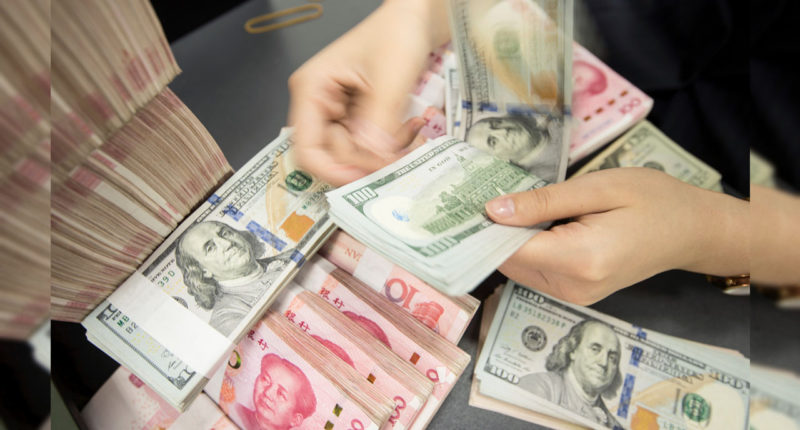The Chinese yuan has fallen to new record lows in relation to the rising US dollar.
What is happening
The yuan, which is traded worldwide, dropped to its lowest level since statistics started to be made accessible in 2011. The value of the local currency in China fell to its lowest level since the world financial crisis of 2008.
Why this is happening
After the US central bank raised interest rates once again earlier this month, the dollar has been strengthening versus a number of other major currencies. Major stock market indices across Asia experienced a steep decline on Wednesday but many investors regard the dollar as a safe haven for their funds in times of distress.
This has contributed to its appreciation against other currencies, particularly the British pound, which fell to an all-time low versus the dollar on Monday. Also on Wednesday, the dollar hit a new 20-year high against most major world currencies.
Digging deeper
The People’s Bank of China (PBOC) has been lowering interest rates in an effort to boost growth in an economy devastated by Covid lockdowns while the US Federal Reserve is aggressively heading in the opposite direction in an attempt to contain inflation.
What this means
The fall in the value of the RMB can actually benefit Chinese exporters by making their goods cheaper and thereby increasing demand.
However, exports account for only 20% of the Chinese economy these days, so a weak yuan would not reverse basic domestic weakness driven mostly by Beijing’s zero-covid agenda and a property crisis.
The yuan’s decline has weakened other currencies in the region, notably the Australian and Singapore dollar, as well as the South Korean won.
Going forward
The dollar is viewed by many investors as a secure investment to make when circumstances are tough. That has aided in raising its worth in comparison to other currencies, such as the British pound, which on Monday hit an all-time low versus the dollar. The dollar also hit a fresh 20-year high against a closely watched group of the top international currencies on Wednesday.
Another currency that has weakened as a result of the strong dollar is the yuan. As a result of domestic economic problems, China and the United States are responding in quite different ways.
In order to spur growth in an economy devastated by Covid lockdowns, the People’s Bank of China (PBOC) has been lowering interest rates, while the US Federal Reserve. China’s central bank has been attempting to arrest the yuan’s decline by increasing the cost of betting against the currency. They have also reduced the amount of foreign currency banks were required to retain.

